View this post on Instagram
Any book about Hollywood is automatically filled with the work of LGBTQ artists both on-screen and behind the camera. In my new book, There Are No Small Parts: 100 Outstanding Film Performances with Screen Time of 10 Minutes or Less—which covers 1935 to the present—you’ll find classics with gay-coded characters, such as Bride of Frankenstein (1935), Rebecca (1940), Laura (1944), All About Eve (1950), and Strangers on a Train (1951). From more recent times, I’ve included films with explicitly queer characters, such as The Talented Mr. Ripley (1999), Spotlight (2015), and Can You Ever Forgive Me? (2018).
Here are four performances featured in the book, each one delivered by an LGBTQ performer. The fifth slot goes to a straight-identifying actress who so touchingly enhanced a landmark gay film…
Thomas Gomez in Come to the Stable (1949)
In this holiday favorite, Gomez initially appears to be a comic version of a big-shot gangster, yet he makes a remarkable transition during his 7-minute role. After he refuses to donate the property that nun Loretta Young requests for a children’s hospital, Gomez unexpectedly confesses the private grief he is nursing: a son killed in WWII. If Young will provide a stained-glass hospital window in his son’s honor, then Gomez will generously grant her the land. His movingly understated performance transforms a tough-guy stereotype into the film’s emotional center.
O.E. Hasse in Decision Before Dawn (1951)
Before serving two months in prison in 1939 for his homosexuality, Hasse had been a consistently employed stage and screen actor of 1930s Germany. After WWII, he appeared in several Hollywood-produced films, including this Best Picture Oscar nominee, a true-life tale of wartime espionage. As a coldly authoritative Nazi colonel with the vulnerability of a bad heart, Hasse is devoid of any melodramatic villainy. In his 8-minute role opposite the film’s star (Oskar Werner as a German medic and Allied spy), Hasse commands the screen, keeping viewers off balance with his mesmerizing mix of merciless power and fragile health.
How about we take this to the next level?
Our newsletter is like a refreshing cocktail (or mocktail) of LGBTQ+ entertainment and pop culture, served up with a side of eye-candy.
Jodie Foster in Alice Doesn’t Live Here Anymore (1974)
Before Martin Scorsese cast her as the 12-year-old prostitute in Taxi Driver (1976), he gave Foster this 4-and-a-half-minute role as a shoplifting, ripple-drinking young rebel with a smart mouth. Briefly a bad influence on the title character’s 11-year-old son (Alfred Lutter), Foster shows astonishing self-confidence. She’s hilariously jaded and determined not to be tamed. She’s also clearly on her way to two Best Actress Oscars.
Jane Lynch in Julie & Julia (2009)
This final and best film from writer-director Nora Ephron is a tribute to the power of enthusiasm, primarily through Meryl Streep’s extraordinary embodiment of Julia Child. When Lynch arrives for a mere 5 minutes as Julia’s sister, Dorothy, it’s a glorious reunion of siblings who are keenly matched in their infectious joy, blasts of laughter, and corresponding eccentricities. Whether eating together or partying together, they achieve a state of sisterly bliss.
Linda Cardellini in Brokeback Mountain (2005)
In just three scenes, lasting an overall 5 minutes, Cardellini plays a woman who doesn’t know that the man she loves (Heath Ledger) is closeted. She beautifully modulates her character from flirty barroom server to woman in love to someone heartbroken and confused. It’s a frank, unguarded performance, just one more component of excellence from this enduring milestone of same-sex love.
John DiLeo is the author of seven books about classic movies. Find him on Instagram and Twitter. There Are No Small Parts is available wherever books are sold.
This article includes links that may result in a small affiliate share for purchased products, which helps support independent LGBTQ+ media.

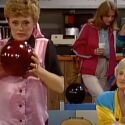







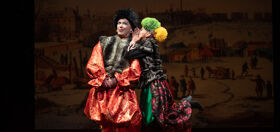


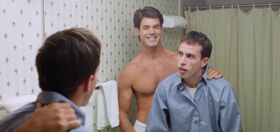


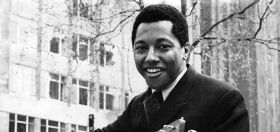
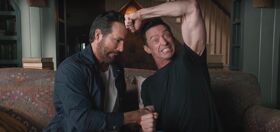

Mr. Stadnick
Well written and surprisingly for Queerty no cut and paste twitter blurbs. Nice to see actual writing on this site.
Joshooeerr
Not just well-written, but well-researched and thoughtful. Let’s have more of this guy.
Saps48
I must agree, one of the best-written articles in a long time. More, please.